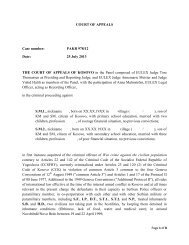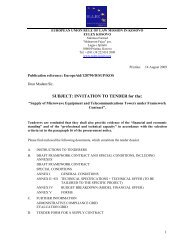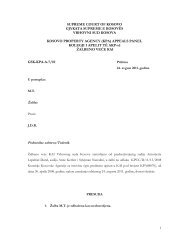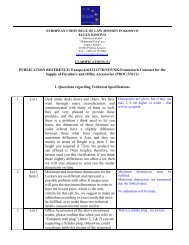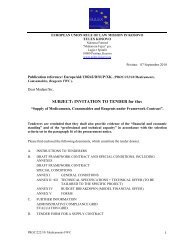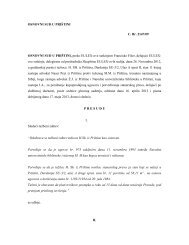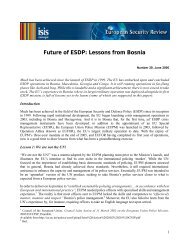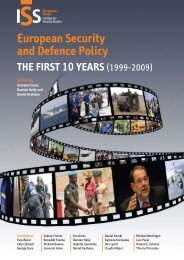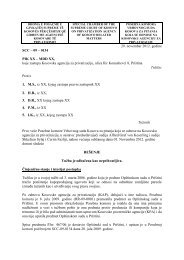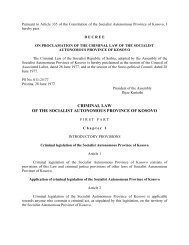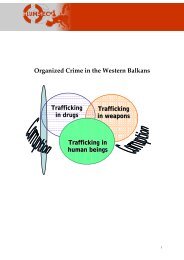English - Eulex
English - Eulex
English - Eulex
Create successful ePaper yourself
Turn your PDF publications into a flip-book with our unique Google optimized e-Paper software.
a) War Crimes against the Civilian Population, Terrorism, Multiple<br />
Aggravated murder<br />
In January 2009, in the course of the transfer of cases, UNMIK international judges handed over to EULEX<br />
judges 3 criminal cases involving war crimes charges which were pending appeal of the first instance<br />
verdict before the Supreme Court of Kosovo. All three war crimes cases were selected for the jurisdiction<br />
of EULEX judges sitting at the Supreme Court as this offence is within their exclusive competence.<br />
Selim Krasniqi et alia<br />
The criminal case against Selim Krasniqi was completed on 10 April 2009: the appeals filed on behalf of<br />
the defendants were partially granted, and their sentences reduced. The case involved allegations of an<br />
unlawful detention centre run by the Kosovo Liberation Army (KLA) in Rahovec/Orahovac municipality.<br />
Between 1 May 1998 and 31 August 1998, Selim Krasniqi, in complicity with others, and in a criminal plot<br />
to unlawfully detain Kosovo Albanian civilians, participated in the illegal arrest and detention of Kosovo<br />
Albanian civilians suspected of collaboration with Serbs, and held them in Dranovc/Drenovac village in<br />
inhumane conditions, and subjected them to beatings. Among those civilians 12 individuals – who were<br />
arrested and illegally detained and beaten – were identified in the verdict.<br />
On 10 August 2006 a panel of three international (UNMIK) judges in Prizren District Court found Selim<br />
Krasniqi and two other defendants guilty of the charges, which qualified as war crimes against the civilian<br />
population. All three defendants received seven years imprisonment.<br />
The three defendants appealed against the verdict in the Supreme Court. On 10 April 2009, the appellate<br />
panel of the Supreme Court, composed of three EULEX judges and two Kosovo judges, rendered its<br />
judgment on the appeals. Below is one of the main points raised in the Appeal and the conclusions reached<br />
by the Supreme Court with regard to the applicability of the provisions of international humanitarian law<br />
in this case.<br />
The Appeal pointed out that for there to be a violation of international humanitarian law, there must be<br />
an armed conflict. The appeal contended that the temporal and geographical scope of the “armed conflict”<br />
does not extend beyond the precise time and place of the hostilities.<br />
The Supreme Court referred to the decision of the Appeals Chamber of the ICTY in the case of Prosecutor<br />
vs. Dusco Tadic in which ICTY found that “the definition of “armed conflict” varies depending on whether<br />
the hostilities are international or internal but, contrary to Appellant’s contention, the temporal and<br />
geographical scope of both internal and international armed conflicts extends beyond the exact time and<br />
place of hostilities. With respect to the temporal frame of reference of international armed conflicts, each<br />
of the four Geneva Conventions contains language intimating that their application may extend beyond<br />
the cessation of fighting. For example, both Conventions I and III apply until protected persons who have<br />
fallen into the power of the enemy have been released and repatriated ...” 2<br />
2 See ICTY, Prosecutor vs. Dusco Tadic, Decision on interlocutory appeal on jurisdiction of 2 October 1995, paragraph 67<br />
11



